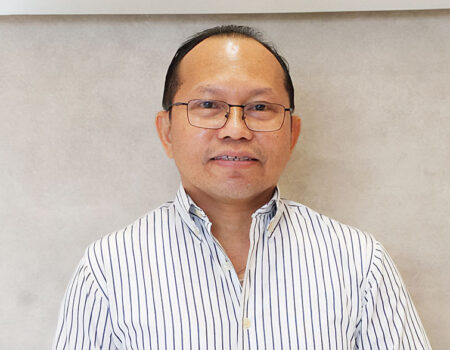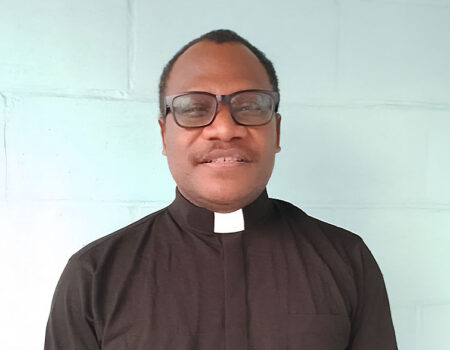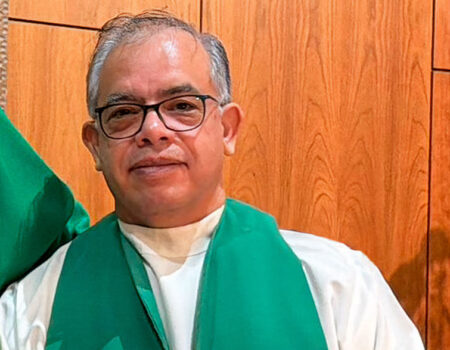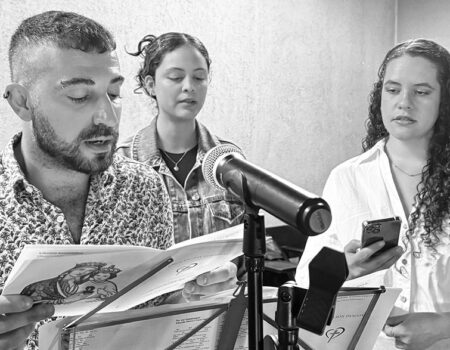Reflection: Pilgrims of hope called to love
Sunday March 30, 2025

Whenever we talk about vocation, we are used to saying that vocation is a call. God calls us to take part in a life project with a view to building his Kingdom, and human beings endeavour to respond to this call. In short, that’s what it is: a vocation is a person who hears God’s call and tries to respond to it, thus giving meaning and originality to their baptism. However, faced with the new challenges of today, the new areopagi of evangelisation, we need to broaden our horizon to understand that living a vocation is more than a service to the Church, but an expression of love for humanity.
Years go by, time changes and humanity evolves and transforms; God, however, remains the same, always and for all eternity. However, humanity’s transformations bring scientific and technological advances that lead humans to a greater dependence on consumer goods. In this new context of human life, we are constantly surprised at how quickly new things appear and become obsolete.
While human creation is advancing rapidly in the world of artificial intelligence, it is regressing in fraternal relationships, social responsibility, caring for our fellow human beings, preserving the planet with its natural resources and the search for God. War, intolerance and the domination of one nation over another are not events of past centuries, much less isolated ones. All these things are current affairs. Humanity has evolved in science and technology but has regressed in love, fraternity, social justice and care for the planet.
The values of the Gospel, care for our common home, and the bonds of fraternity are losing centre stage in life. What matters is ‘me’. The vocational journey does not progress in selfishness. Currently, the concept of vocation is clouded by the dynamic of selfishly looking after one’s satisfaction to the detriment of community commitment. Notably, in constructing an ephemeral and fleeting state of life, existential emptiness assumes a dominant role in people’s lives, and they cannot always break through the bubble of this imprisonment.
The Church has fulfilled its role as a prophet against everything that hurts or enslaves humanity. It has endeavoured to communicate to the world the danger of turning away from God and the need to care for the planet as a condition for continuing to provide for the sustainability of creation. The Church’s vocation is to build a new humanity for the benefit of all, without exclusion.
Gospel concepts such as faith, hope, and charity are never outdated. And the Church has never ceased to be missionary and committed to building the Kingdom of God. It is in this dynamic that the Jubilee Year invites us all to be ‘pilgrims of hope’. In current times, the vocation of every Christian must be characterised by a ‘hope that knows no end, hope in God’, in the words of Pope Francis.
In this sense, we can say that the Jubilee of Hope, which is a time of mercy and forgiveness, is also a vocational occasion, both so that men and women who have taken on an ecclesial vocation can nurture it and so that other people can discover the meaning of dedicating energy and time to building an authentic and worthwhile life. In the context of the jubilee year, the invitation to be ‘pilgrims of hope’ is universal because, as the title of the bull proclaiming the Jubilee 2025 says, ‘hope does not disappoint’ (Spes non confundit).
Today’s vocational awakening, although it has the primary function of attracting vocations to the Church by raising up the most varied ministries, gifts and charisms, must promote with the same intensity a look of co-responsibility towards the environment and towards the men and women of our time. As promoters of the Gospel of life, the Church is called not to allow the signs of death to undermine the survival of the planet in all its exuberance and diversity. It is in the rhythm of hope that we persevere.
Girley Reis, MSC
Photo: www.freepik.com – http://noppz.com





